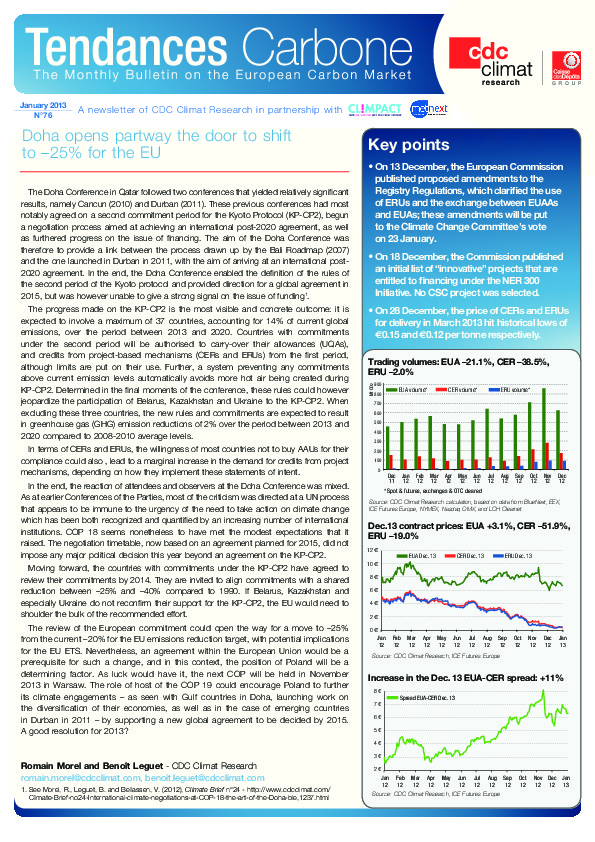Doha opens partway the door to shift to –25% for the EU
The Doha Conference in Qatar followed two conferences that yielded relatively significant results, namely Cancun (2010) and Durban (2011). These previous conferences had most notably agreed on a second commitment period for the Kyoto Protocol (KP-CP2), begun a negotiation process aimed at achieving an international post-2020 agreement, as well as furthered progress on the issue of financing. The aim of the Doha Conference was therefore to provide a link between the process drawn up by the Bali Roadmap (2007) and the one launched in Durban in 2011, with the aim of arriving at an international post-2020 agreement. In the end, the Doha Conference enabled the definition of the rules of the second period of the Kyoto protocol and provided direction for a global agreement in 2015, but was however unable to give a strong signal on the issue of funding.

